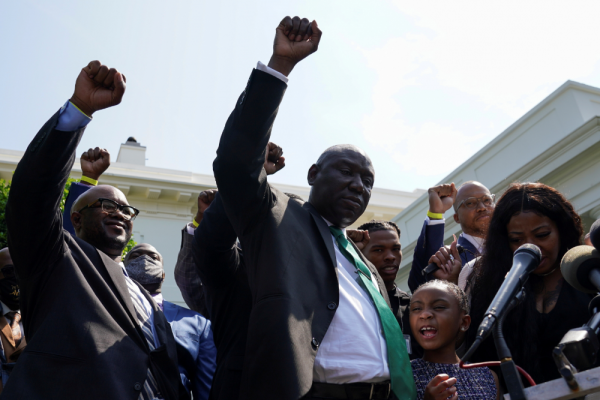May 27, 2021
On the eve of the one-year anniversary of George Floyd's death, Sojourners' Terrance M. McKinley spoke with Benjamin Crump, a national civil rights leader who has served as the lead attorney for the families of Floyd, Ahmaud Arbery, Breonna Taylor, Trayvon Martin, and other Black people wrongfully killed by police or vigilantes. They discussed the road ahead and whether proposed policy change at the federal level could lead to needed change in policing. —The editors
Read the Full Article

Already a subscriber? Login
